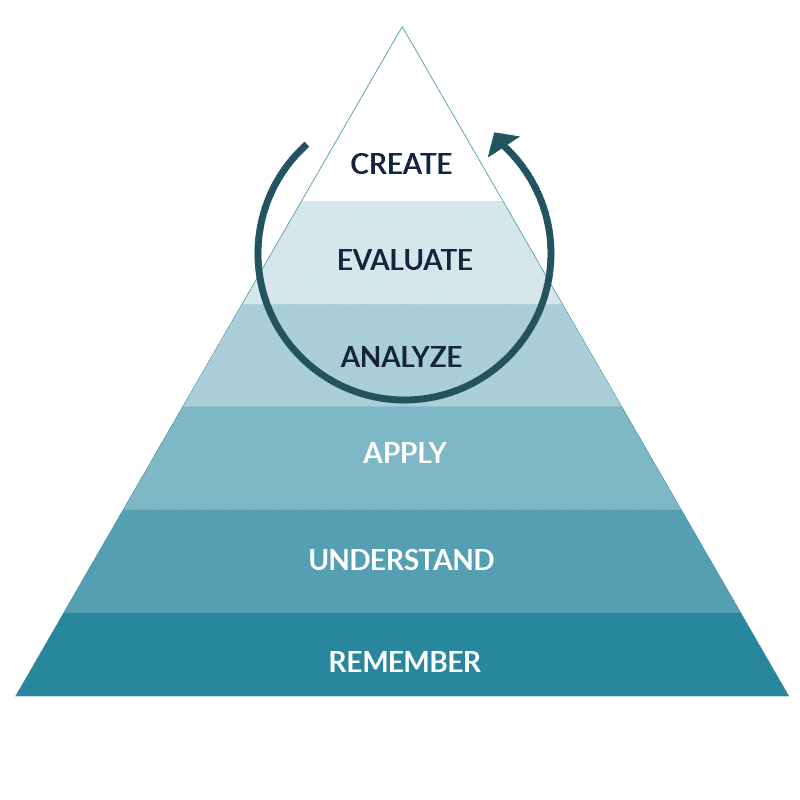A modern approach to learning from others in the flow of work.
Peer learning is a method of learning from your peers, in a formal or informal context.
A lot of peer learning happens at work, and in a learning context, peer learning requires structure, rules, facilitation, and monitoring.Peer learning is often one of the things students enjoy the most.

A senior engineer mentoring a junior.

A student doing rotations under a nurse.

An apprentice and an electrician.

An executive coaching a senior manager.

CEOs sharing at a conference.
Peer Learning is Already in Our Daily Lives
We learn from our peers everyday – from articles, online forums, social media, on the job, and more.
Peer learning is a decentralized version of the classroom where learning is centralized on the instructor.
In a work environment where projects are king and collaboration is key, people have many more opportunities to learn from their peers naturally as part of their work. In engineering, this could be via debugging, sharing resources, troubleshooting an incident, etc.

Explaining answers to
What is Peer Learning?
Peer learning is at the core of our approach. Students collaborate through peer code reviews, work in small groups, and tackle group assignments that mirror real-world projects. Case studies and discussions help deepen understanding, while Engineering Labs provide hands-on experience with cutting-edge technologies. Collaboration extends beyond the classroom, with active engagement through Discord channels, and students are encouraged to leverage resources like Stack Overflow, YouTube, and other online platforms to expand their knowledge and solve challenges efficiently.
Peer Learning Are a Learning Tool and Industry Standard
We spend a lot of time analyzing the complexity, difficulty, and cognitive challenge of each project.
This ties deeply to learning science and our experience in learning design.The vast majority of other providers do not understand or apply project-based learning science or cognitive development science to their curricula. At Qwasar, it is the very core of what we do and where we have years of experience.

Reviewer Assigned
Analyze Submitted Work
Test & Evaluate
Review Code Quality
Comment & Discuss
Pass or Fix & Re-submit
Peer Learning
and the Learning Community
In giving and receiving peer reviews, students learn how to communicate about their work and how to give and receive feedback. This is important for developing soft skills as well as preparing for the workplace where peer reviews are generally part of tech jobs.
By participating as a reviewer and a reviewee, learners contribute to the overall learning community. Reviewers also receive feedback from reviewees, providing motivation for reviewers in a manner similar to what occurs in the workplace.
Similar to the process for reviewing academic articles, the peer review process is the evaluation of submitted work by your peers who are competent in their field of knowledge. The peer review process requires analysis, critical thinking, and creativity in order to evaluate submitted work.
The reviewee may have to explain what they have done and why, which helps them to develop communication skills. Reviewers need to understand quickly and identify possible areas where the submitted work does not meet project criteria, standards, or best practices.
COMPLETE
A PROJECT
Earn project or experience points for each project successfully completed.
SPEND
POINTS
Earn project or experience points for each project successfully completed.

EARN
POINTS
Earn project or experience points for each project successfully completed.
Peer Reviews Are a Learning Tool and Industry Standard
Peer code reviews are an industry standard and part of every engineer or developer’s job. They help maintain high quality, decrease bugs and errors, reduce future tech debt, and more.
Students learn in being reviewed and in reviewing, and are operating at the top four levels of the skills pyramid. Reviewers must evaluate, analyze, think critically, and create ways to break the submitted solution and construct tests.

.webp)
View Our Master’s in Computer Science
Discover our modern Master’s of Science in Computer Science degree program.
Learn More.webp)
Explore our Modern Learning Model
With no lectures, we use a modern approach to learn that embraces technology!
Learn More
Student Experience vs. Others
How do Qwasar programs compare to other tech training options out there? Find out how we stack up.
Learn More